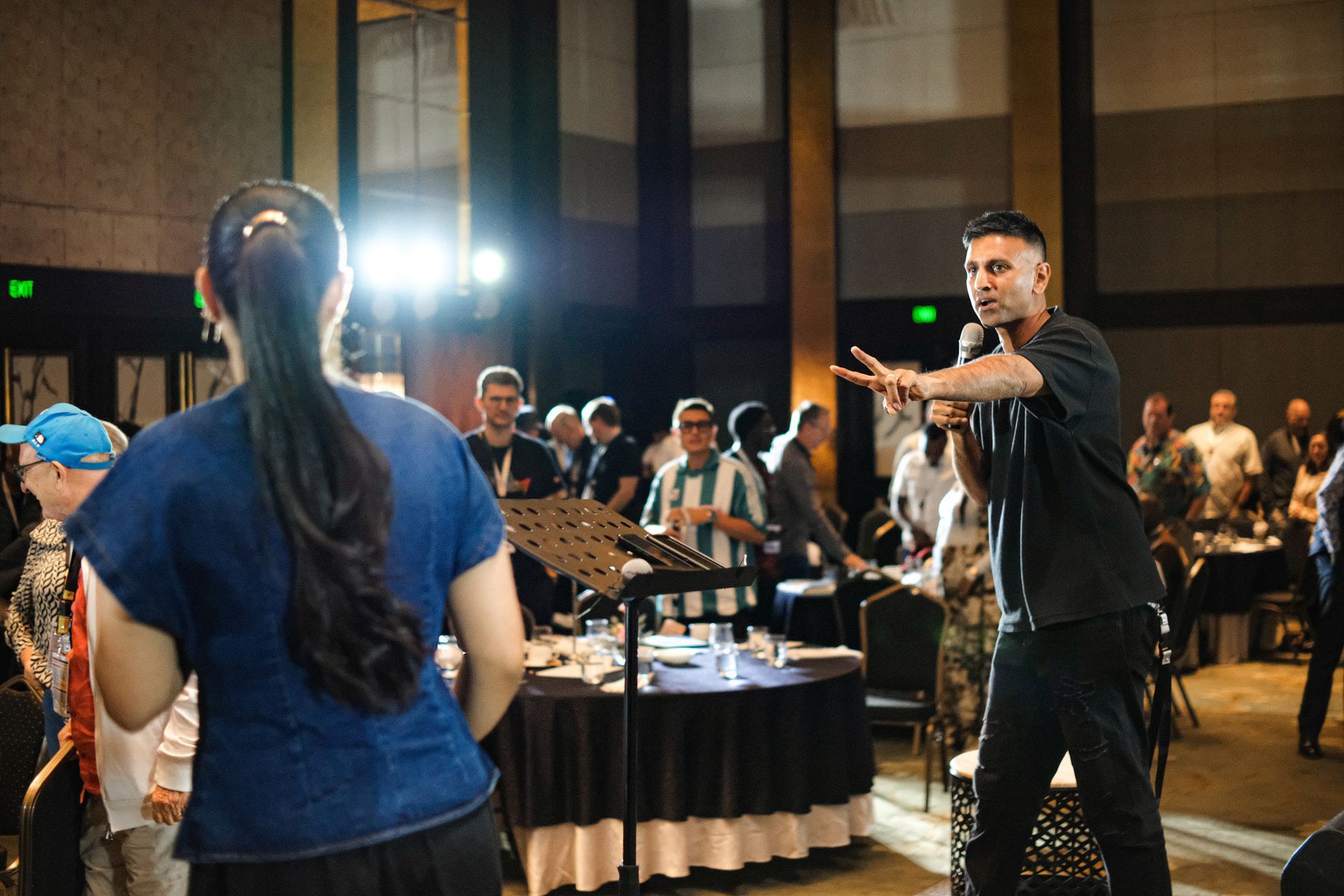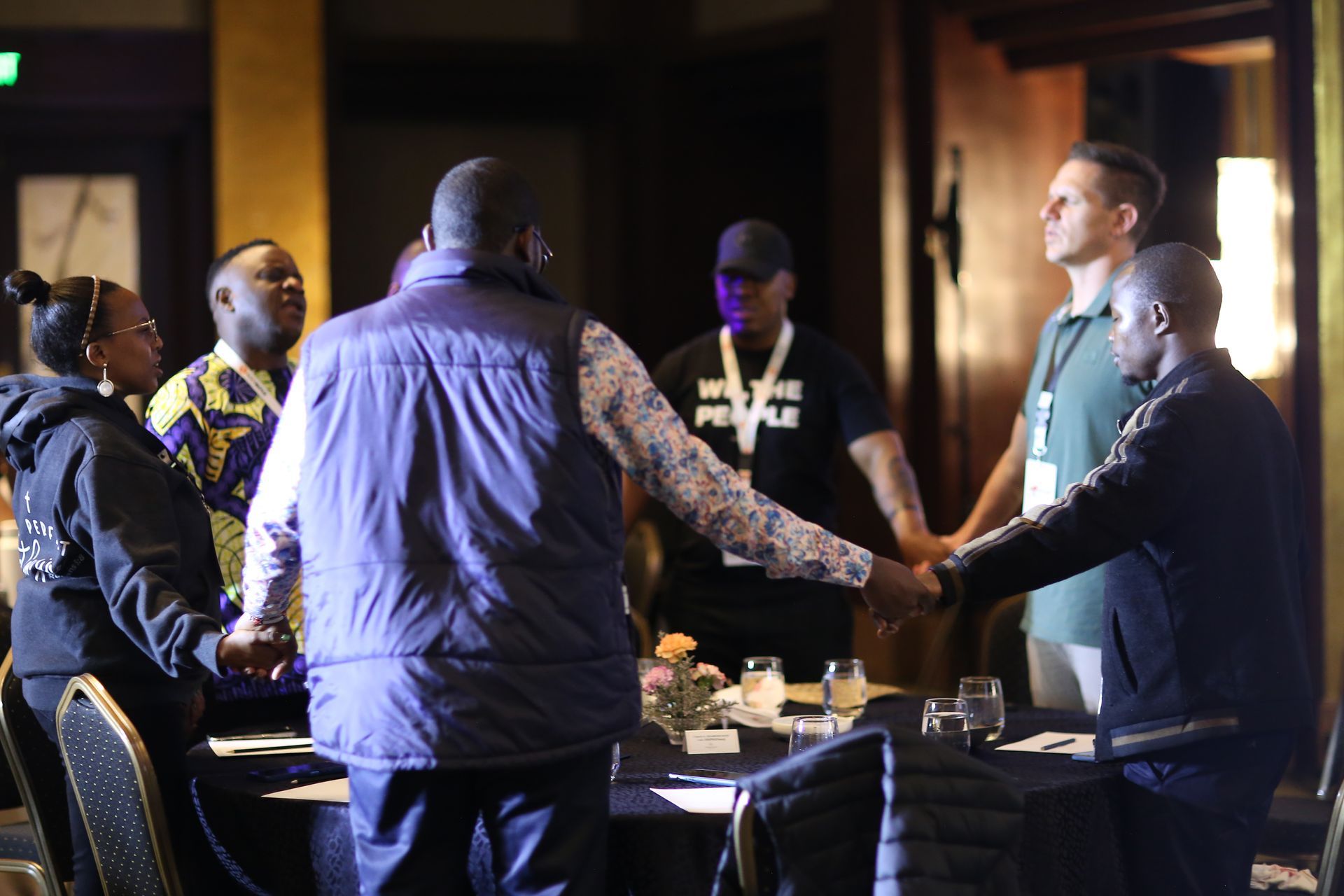Living in the Gap
Leading with courage, capacity & commitment
Share this blog: Together accelerating Christianity in the next generation!
Living in the Gap between Past and Future
While attending a leadership conference in London, Mike Sayer, founder of the Rebuilders podcast and leader of Red Church in Australia, made a profound statement about the leadership of today. He described our time as "living in the gap" between the falling walls of outdated systems and the anticipation of what the future holds. This gap challenges us to build healthier, more robust structures, avoiding the repetition of past mistakes. Sayer's insight is particularly relevant in countries like South Africa, Zimbabwe, and Nigeria, where young people are dismantling harmful systems.
Historically, when societies face crises, God raises leaders to guide change. From Moses to Nelson Mandela, leaders have emerged to confront injustice and rebuild. However, true transformation requires leaders who are accessible, humble, teachable and willing to serve. They must challenge the status quo while creating a better future.
The Need for Next Generation Leaders
To navigate this transition, we need leaders with the courage, capacity, and commitment to not only challenge the status quo but also to create new paradigms. The story of Nehemiah offers a powerful example: builders who, with one hand, hold building materials and, with the other, weapons. They symbolize the balance of challenging and creating—a duality essential for contemporary leadership.
Servant Leadership: The New Millennial Paradigm
In Proverbs 21:1, it is said, "The leader's heart is a stream of water in the hands of the Lord." This highlights the importance of leaders being guided by divine wisdom, not just their emotions. Moses' journey teaches us that leaders must adapt and seek new strategies, especially when past methods no longer suffice. True leadership in this new era involves stepping out of the spotlight to serve and transform the world. Servant leadership propels leaders forth in humility, leading by example rather than seeking personal recognition. This servant-leader model, quiet yet impactful, is crucial for meaningful change.
Moses' leadership journey provides timeless insights:
1. God-Led Leadership: Leaders guided by divine wisdom rather than emotions. Emotional decisions can cost nations dearly, as seen when Moses, in frustration, struck the rock instead of speaking to it, as God had instructed.
2. Guarding Faith in Frustration: During times of frustration, leaders should seek to guard their faith diligently. Emotional intelligence is crucial, as it directly impacts decision-making and the success of their vision.
3. Embracing New Strategies: Leaders must not rely on outdated methods when God invites them to innovate. The strategies of the past may not be effective for today's challenges, necessitating a fresh approach.
Godly Leadership Strategies for the New Generation
For today's leaders, particularly the young, the call is clear: In times of crisis, God raises godly leaders to address the needs of the moment. Effective leaders not only challenge existing systems and strongholds but also create new, better ones, intentionally breaking old ways to construct improved alternatives. Leadership must be accessible and humble, serving communities to prevent the rise of new unhealthy idols. Finally, it is crucial for leaders to trust in divine guidance, seeking new strategies tailored to contemporary challenges that embody the principles of justice, service and people-centric governance, ensuring their leadership benefits all. By embracing these principles, young leaders can navigate the gap, cultivating transformation in their communities and beyond.
We are at a crossroads, living in the gap between what was and what can be. Our future depends on the leaders we choose to follow and the values they embody. By embracing servant leadership, guided by divine wisdom and a commitment to innovation, we can build a world that reflects justice, humility, and true transformation. The challenge is immense, but the opportunity is greater.













